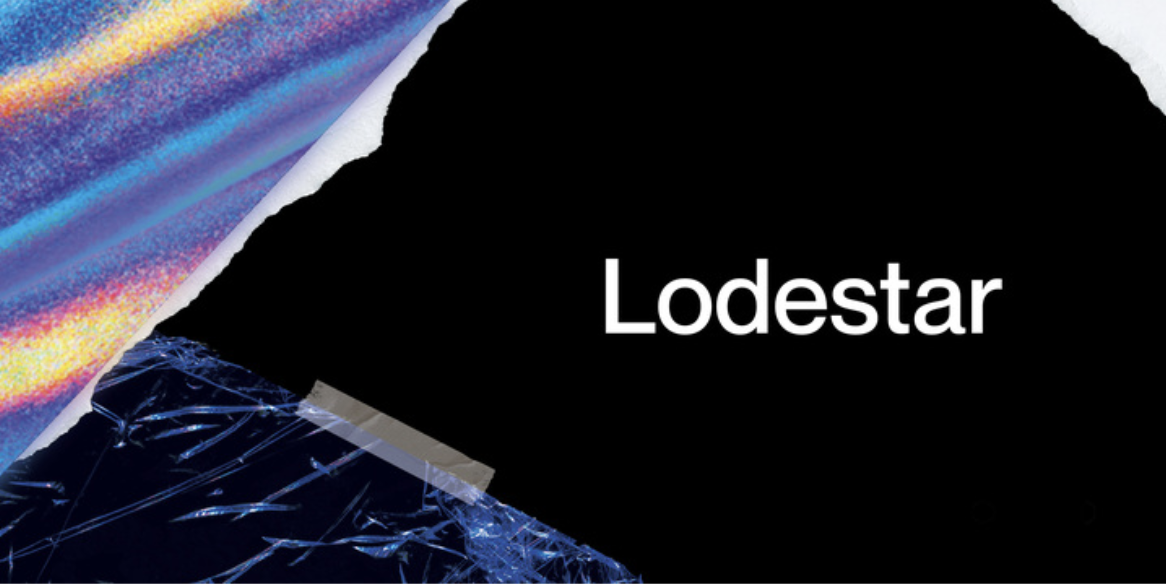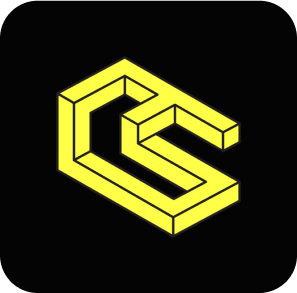A Lodestar for Ethereum Consensus #6
A year-end review of ChainSafe’s TypeScript implementation of Ethereum Consensus.

Welcome back to another edition of the "A Lodestar for Ethereum Consensus" series, where we share updates on our journey building Lodestar. Join us as we highlight recent milestones and our contributions to the Ethereum protocol ecosystem. Let's dive in!
The 5th official consensus client on Ethereum 🎉
Early in the year, after completing an audit for the Ethereum Foundation, we became the 5th consensus client for Ethereum and were officially implemented on important Ethereum validator onramps, including the main Staking Launchpad.
After this endorsement, we started getting included in community metrics, like client diversity. We even got a shoutout from community members endorsing Lodestar on why it’s essential to use minority clients. This is especially helpful in mitigating client-specific issues, like what we experienced during the May non-finality incident.
Adding new contributors
We began the year with new contributors we met at Devcon VI in Bogota, who decided to contribute their time and eventually join our team. Both Nico and Matthew have been instrumental to our success, reinforcing the openness and accessibility of the Ethereum protocol community to those determined to improve it. By the end of the year, we also included N.C. and Julien to our team, and we’re super excited to see what we can deliver in 2024!
We also want to give a special shout-out to 24 external community members for contributing PRs to Lodestar this year. This includes MicahZoltu, jiron12, flanagansteve, omahs, pranayrauni, filoozom, Daniel-K-Ivanov, maschad, coincashew, Savid, trim21, acuarica, 0xTylerHolmes, lucassaldanha, GoodDaisy, kevinheavey, atkinsonholly, scorbajio, rdvorkin, murrayee, orenyomtov, eth2353, 4rgon4ut, and jshufro.
Lodestar makes it possible for TypeScript developers to provide immense value to our ecosystem, and we continue striving to make it easier through better DevEx. If you’ve had a problem, question, or comment for us in Discord, you would’ve met some of these people. Our community is growing, and the best way to connect and start working together is to join our Discord!👋
Shipping Capella for the Shapella Upgrade
In April, the Ethereum network completed the Capella + Shanghai upgrade, enabling withdrawals and completing the validator lifecycle for Ethereum validators. Lodestar, alongside EthereumJS, was able to jumpstart a public devnet using only JavaScript clients to demonstrate the power of JS leading implementations on the Ethereum protocol ecosystem. It was the first iteration of its kind, and with the support of the Ethereum Foundation’s DevOps team, developers got a head start in testing the new features before shifting focus towards public testnets.
As a minority client, Lodestar can integrate new features quickly and push the accessibility of the Ethereum roadmap to a larger group of developers. Likewise, we contributed to implementing the Deneb upgrade deliverables early, which pushed devnets into passing blobs with at least one viable client combination.
Lodestar adoption with node operators
Another objective we met this year was incentivizing users to try our consensus client as part of their solo staking setup. The incentive concretely found 85 unique solo validators utilizing our client, and each was rewarded with a piece of the $25,000 USDC prize.
This program also allowed us to better understand how solo stakers are participating in securing the chain. We’ve made huge strides in making Lodestar a viable consensus client choice in the most widely used tools for running an Ethereum node. For those who have not claimed their POAP, you can still do so here!
We’ve consistently delivered our client on DappNode, eth-docker, and Rocketpool and are seeking further integrations with other community node tooling, such as Ethereum on ARM and NiceNode. Please let us know if you’re working on something that makes it easier for users to run Ethereum nodes. We’d love to integrate! Another priority of ours is compatibility with distributed validator technology (DVT) setups and other experimental DVT specifications in the staking space.
In reality, Ethereum staking is not dominated by solo stakers, but by larger node operators running larger infrastructure with larger sets of validators. Therefore, it only makes sense to ensure we help larger node operators implement Lodestar in their staking infrastructure.
Special thanks to CryptoManufaktur and RockLogic for running Lodestar and providing feedback to improve our client for larger node operations. It is apparent that this year also led to positive enhancements in our performance as Lido node operators.
Holesky, the Goerli successor
With the launch of the new public testnet Holesky, we’re on our way to retiring the immensely useful Goerli testnet. Goerli has provided the community with a playground to deploy validators and decentralized applications on Ethereum.
There came a point in time this year where Goerli became obsolete due to its lag in validator growth, which decoupled it from being a useful indicator of the mainnet environment. This was partially due to the difficulty of acquiring Goerli Ether for development use due in part to hoarding by speculators, squeezing the supply of testnet Ether.
Holesky solves some of these problems, and as a large node operator maintaining a large share of validators on the network, we seek to continue supporting the Ethereum community by reliably validating this public testnet.
Congratulations to the team for #Holesky launch 👏@EthCatHerders are excited to join @BarnabasBusa @parithosh_j @q9fcc on #PEEPanEIP with @poojaranjan19 to learn more about the largest #Ethereum public #Testnet.
— Ethereum Cat Herders (@EthCatHerders) September 29, 2023
🗓️ Oct 11 at 18:30 UTChttps://t.co/Nkzju7TqIi#TestingTheSurge pic.twitter.com/VCDYLSbRYD
Lodestar Prover: a safer Ethereum for everyone
We had an opportunity to expand on the great work done by members of the light client community. At this year’s Light Client Summit at Devconnect, Nazar presented the Lodestar Prover—a tool for network interaction that enhances trust in RPC providers in a trustless manner using the light client protocol.
Prover allows local verification of data from RPC providers, acting as a web3 or security wrapper around existing web3 providers. Prover is compatible with web3.js, ethers.js, and MetaMask providers, among others.
Currently, it supports a limited number of web3 methods, but we continue to improve the tooling and welcome contributions or builders to utilize our tooling. We’re excited to see what people will do with it!
Real-world applications using light clients🥂
— Lodestar (@lodestar_eth) November 15, 2023
In the upcoming @ethlightclients event, @Romandvorkin from @FireblocksHQ will present his light client solution using Lodestar for token balance verification.
Check out the details below, and be sure to join us for the talk👇👇 https://t.co/sJfJFv5XhP
What’s next for Lodestar?
There are many options for how Ethereum should move forward, but a lot of them require proving to a group of innovators that it’s needed, well thought out, and ready for implementation with data from proof of concepts. This is how you solidify an EIP for a group of protocol developers who will scrutinize every aspect of the EIP.
At Lodestar, our team contributes heavily to research and development initiatives to ensure Ethereum can continue becoming the world’s most useful, neutral settlement layer. For instance, Dapplion contributed to single secret leader election to protect the privacy of proposers until the block is proposed.
Gajinder continues to ensure Lodestar is compatible with Verkle Tree testnets to help reduce proof sizes, unlocking the potential for innovations such as statelessness, lower hardware requirements (decentralization), higher gas limits (scaling), and zero knowledge EVMs. Another short-term innovation to ensure we continue to optimize the beacon chain: a proposal to raise the max effective balance for validators to further reduce computational and network costs, introducing in-protocol deposits, and reusing validator indexes.
As of today, there’s no shortlist of potential inclusions for the Electra/Prague upgrade. Join the discussion to add what you’d like to see in the next Ethereum upgrade through the EthResearch forum and the consensus-spec Electra issue for Ethereum consensus.
Contribute to Lodestar! 🌟
At ChainSafe, we’re constantly seeking exceptional talent to join our teams and welcome contributors to the Lodestar consensus client. To any TypeScript developers looking to take on challenges and push the boundaries of the JavaScript ecosystem, get in touch!
To get involved, visit our GitHub repository
If you wish to contact the team, join Chainsafe's Discord in the #lodestar-general channel or explore our job openings page. Alternatively, you can email us at info@chainsafe.io.
Remember to visit our official website and follow us on Twitter for more updates.
Lodestar is built and maintained by ChainSafe, a leading blockchain R&D firm.
